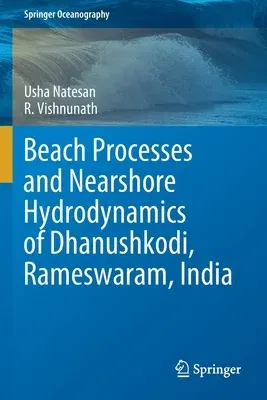Usha Natesan
(Author)Beach Processes and Nearshore Hydrodynamics of Dhanushkodi, Rameswaram, India (2021)Paperback - 2021, 22 September 2022

Qty
1
Turbo
Ships in 2 - 3 days
In Stock
Free Delivery
Cash on Delivery
15 Days
Free Returns
Secure Checkout

Part of Series
Springer Oceanography
Print Length
99 pages
Language
English
Publisher
Springer
Date Published
22 Sep 2022
ISBN-10
981165798X
ISBN-13
9789811657986
Description
Product Details
Authors:
Book Edition:
2021
Book Format:
Paperback
Country of Origin:
NL
Date Published:
22 September 2022
Dimensions:
23.39 x
15.6 x
0.61 cm
ISBN-10:
981165798X
ISBN-13:
9789811657986
Language:
English
Location:
Singapore
Pages:
99
Publisher:
Series:
Weight:
172.36 gm